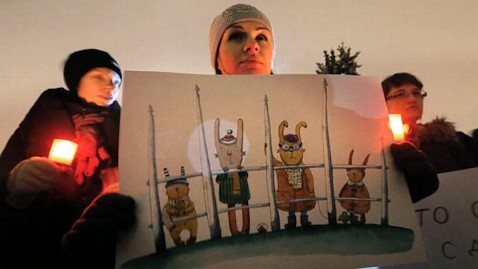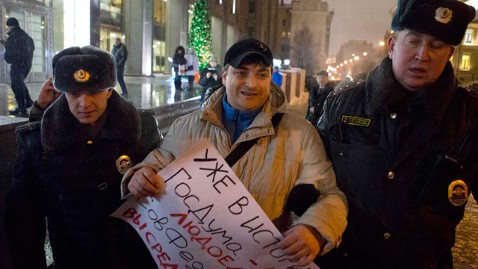In the Bible, he is called Moses. In the Koran, he is the prophet Musa.
Religious scholars have long questioned whether of the story of a prophet leading God's chosen people in a great exodus out of Egypt and the freedom it brought them afterwards was real, but the similarities between a pharaoh's ancient hymn and a psalm of David might hold the link to his existence.
Tune in to Part 2 of Christiane Amanpour's ABC News special, "Back to the Beginning," which explores the history of the Bible from Genesis to Jesus, on Friday, Dec. 28 at 9 p.m. ET on ABC.
Christian scripture says Moses was content to grow old with his family in the vast deserted wilderness of Midian, and 40 years passed until the Bible says God spoke to him through the Burning Bush and told him to lead his people, the Israelites, out of Egypt. According to tradition, that miraculous bush can still be seen today enclosed within the ancient walls of St. Catherine's Monastery, located not far from Moses' hometown.
But there was another figure in the ancient world who gave up everything to answer the call from what he believed was the one and only true God.
Archaeologists discovered the remains of the ancient city of Amarna in the 1800s. Egyptologist Rawya Ismail, who has been studying the ruins for years, believes, as other archaeologists do, that Pharaoh Akhenaten built the city as a tribute to Aten, the sun.
Werner Forman/Universal Images Group/Getty Images
'Back to the Beginning': Bethlehem's Church of the Nativity Watch Video
Garden of Eden: What Do We Know About Adam and Eve? Watch Video
Abraham's Story: Foundation of Judaism, Islam and Christianity Watch Video
She said it was a bold and unusual step for the pharaoh to leave the luxurious trappings of palace life in Luxor for the inhospitable landscape of Amarna, but it might have been his only choice as the priests from the existing religious establishment gained power.
"The very powerful Amun-Ra priests that he couldn't stand against gained control of the whole country," Ismail said. "The idea was to find a place that had never been used by any other gods -- to be virgin is what he called it -- so he chose this place."
All over the walls inside the city's beautiful tombs are examples of Akhanaten's radical message of monotheism. There is the Hymn to the Aten, which translates, in part, to: "The earth comes into being by your hand, as you made it. When you dawn, they live. When you set, they die. You yourself are lifetime, one lives by you."
PHOTOS: Christiane Amanpour's Journey 'Back to the Beginning'
Some attribute the writing of the hymn to Akhanaten himself, but it bears a striking resemblance to a passage that can be found in the Hebrew Bible: Psalm 104.
"If you compare the hymns from A to Z, you'll find mirror images to it in many of the holy books," Ismail said. "And if you compare certain parts of it, you'll find it almost exactly -- a typical translation for some of the [psalms] of David."
Psalm 104, written a few hundred years later, references a Lord that ruled over Israel and a passage compares him to the sun.
"You hide your face, they are troubled," part of it reads. "You take away your breath, they die, And return to dust. You send forth your breath, they are created, And you renew the face of the earth."
Like the psalm, the Hymn to Aten extols the virtues of the one true God.
"A lot of people think that [the Hymn to Aten] was the source of the [psalms] of David," Ismail said. "Putting Egypt on the trade route, a lot of people traveled from Egypt and came back to Egypt, it wasn't like a country living in isolation."
Ismail believes it is possible that the message from the heretic pharaoh has some connection to the story of Moses and the Exodus, as outlined in the Hebrew Bible.











